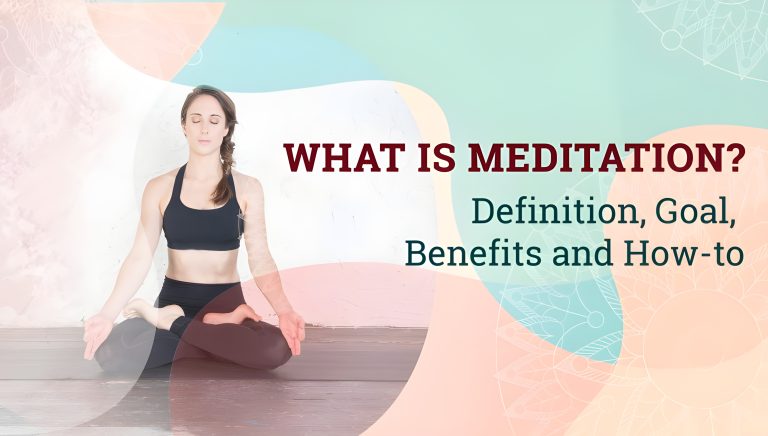Meditation is important because it significantly enhances mental, emotional, and physical well-being. By promoting mindfulness, it helps individuals develop a deeper awareness of the present moment, reducing stress and anxiety. Regular meditation practice can improve concentration, boost mood, and promote emotional stability by encouraging a balanced perspective on thoughts and feelings.
Physiologically, meditation helps lower blood pressure, enhance immune function, and improve sleep quality. It also encourages a sense of inner peace and relaxation, which can counteract the negative effects of a hectic, modern lifestyle.
Furthermore, meditation promotes self-awareness and introspection, facilitating personal growth and a better understanding of oneself. It can also improve relationships by fostering empathy and compassion.
Meditating as an overthinker can be challenging, but it’s entirely possible with the right approach, says Kerala-based Yoga guru and Healing coach Kritika Kumar. She suggests some strategies and steps tailored specifically for overthinkers to help them get started and maintain a meditation practice:
Set realistic expectations
Understand that it’s normal for your mind to wander, especially when you start meditating. The goal is not to stop thinking entirely but to become aware of your thoughts and gently bring your focus back to the present moment.
Create a comfortable environment
Find a quiet, comfortable place where you won’t be disturbed. This helps reduce external distractions and makes it easier to focus.
Start with short sessions
Begin with just 5-10 minutes per session. As you become more comfortable, you can gradually increase the duration.
Choose a focus object
Having a focal point can help anchor your mind. This could be your breath, a mantra, a candle flame, or a soothing sound.
Use guided meditations
Listening to guided meditations can be particularly helpful for overthinkers. A guide can help direct your focus and provide a structure for your meditation practice.
Practice mindfulness meditation
Mindfulness meditation is particularly effective for overthinkers. It involves focusing on the present moment and observing your thoughts without judgment.
How to practice mindfulness meditation:
Find a comfortable position: Sit or lie down comfortably.
Focus on your breath: Pay attention to the sensation of your breath entering and leaving your body.
Notice thoughts without judgment: When thoughts arise, simply notice them without getting involved or trying to push them away.
Gently return to your breath: Each time you notice your mind has wandered, gently bring your focus back to your breath.
Incorporate body scan meditation
Body scan meditation helps ground you in your physical sensations, making it easier to stay present.
How to practice body scan meditation:
Get comfortable: Lie down or sit comfortably.
Take a few deep breaths: Close your eyes and take a few deep breaths to relax.
Scan your body: Start from your toes and slowly move up to your head, noticing any sensations in each part of your body.
Relax each part: Consciously relax each part of your body as you focus on it.
Use mantra or chanting
Repeating a word, phrase, or sound can help focus your mind and reduce mental chatter.
How to practice mantra meditation:
Choose a mantra: Select a word or phrase that feels calming to you, like “peace” or “om.”
Sit comfortably: Close your eyes and sit in a comfortable position.
Repeat your mantra: Silently or aloud, repeat your chosen mantra.
Focus on the sound: Concentrate on the sound and rhythm of the mantra.
Incorporate movement
If sitting still is too challenging, try a movement-based meditation like walking meditation or yoga.
How to practice walking meditation:
Choose a path: Find a quiet place to walk slowly.
Focus on each step: Pay attention to the sensation of each foot touching the ground.
Maintain awareness: Keep your awareness on your movement and surroundings.
Practice self-compassion
Be kind to yourself throughout the process. It’s normal to have thoughts and distractions. What matters is your willingness to gently bring your focus back each time.
Journaling before meditation
Sometimes, writing down your thoughts before meditating can help clear your mind and make it easier to focus.
How to practice journaling meditation:
Set a Timer: Spend 5-10 minutes writing down whatever comes to mind.
Meditate afterwards: Once you’ve emptied your thoughts onto paper, proceed with your meditation session.






